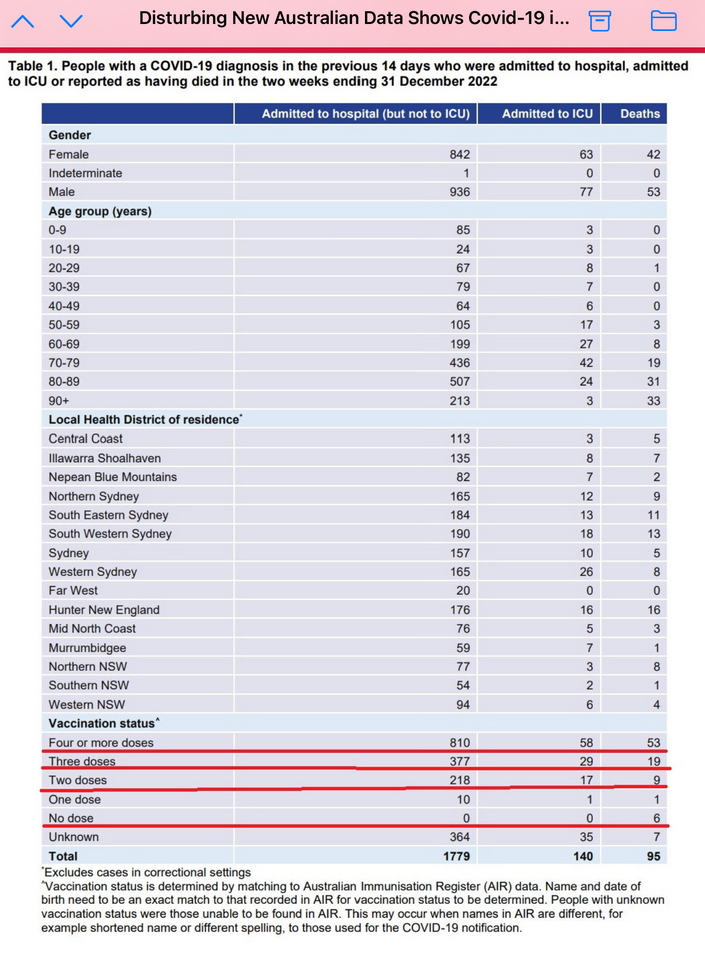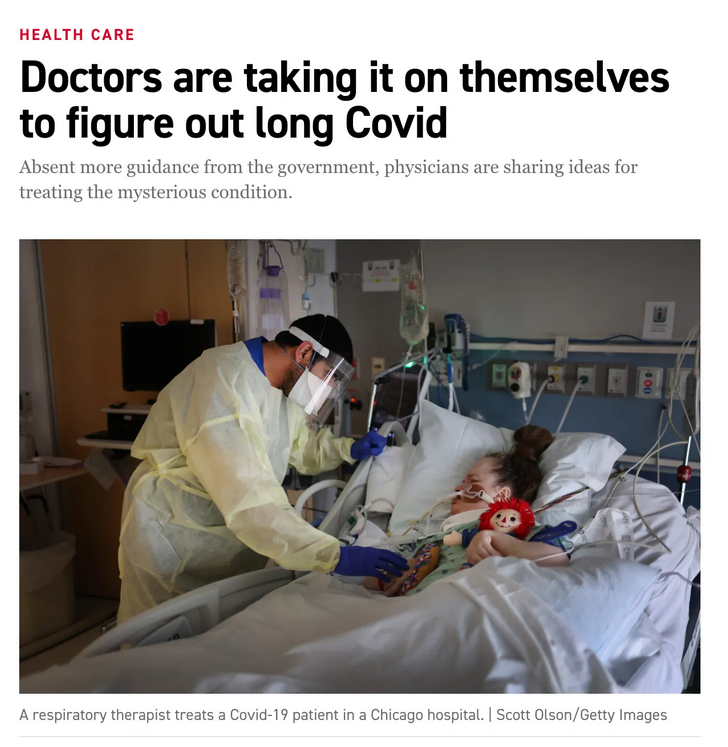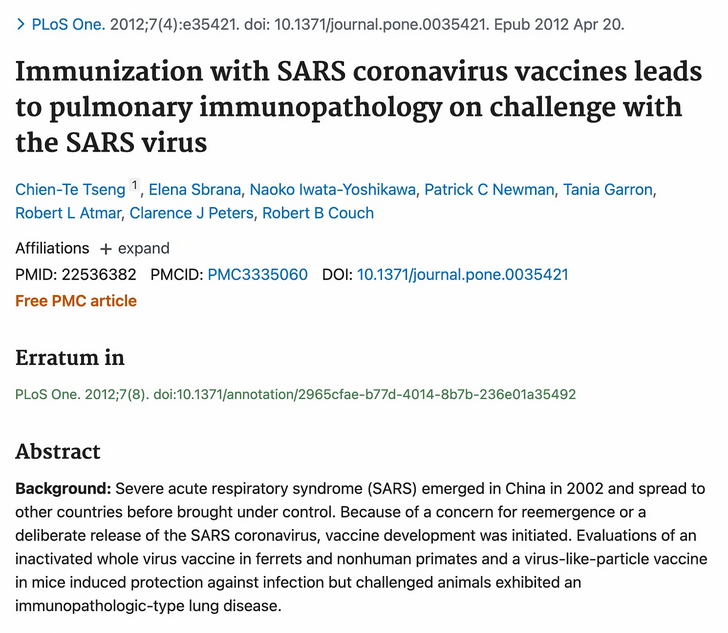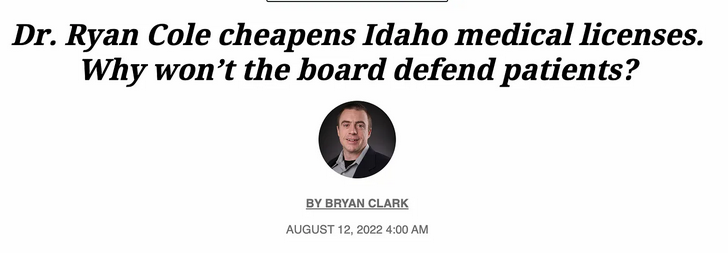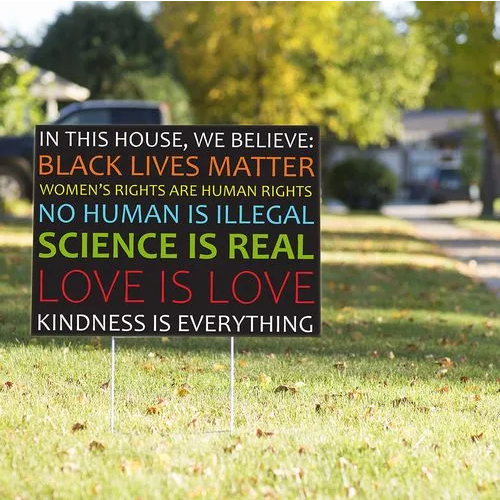A few years ago, I did some research on three early Victorian murders that caused me to read several provincial newspapers of the time. I discovered incidentally to my research that the owners or editors of about half of the British provincial newspapers also sold patent medicines; and this made perfect sense, for by far the greatest advertisers in provincial newspapers were the manufacturers of patent medicines. The owners or editors of the newspapers sold advertisements to the producers of patent medicines, then they sold the newspapers in which the advertisements appeared, and finally they sold the products themselves to the readers. It was an excellent example of rational commercial synergy. (About half of the medicines, by the way, were either to cure or to prevent syphilis — a disease, then, that was a great support to the press of the time.)
Now, the principal quality or characteristic of the sellers of patent medicine has always been effrontery, that is to say the blatant insinuation of the false. Thomas Holloway’s innovation was to insinuate such falsehood on a mass or industrial scale. There was hardly a newspaper in which he did not place a weekly advertisement; moreover, he pioneered the advertisement that masquerades as news story. He would ensure that reports of miracle cures in faraway places, supposedly wrought by his pills and ointment, and written as matter-of-factly as possible, were placed in every newspaper, reports whose veracity no one could possibly check for himself, of course.
As Napoleon once said, repetition is the only rhetorical technique that really works — besides which hope and fear render people susceptible to effrontery. In Thomas Holloway’s time, the fear of illness was often, and the hope of cure rarely, justified; at least Holloway’s preparations were unlikely to do much harm (they contained aloe, myrrh, and saffron), unlike the prescriptions of the orthodox doctors of the time. They allowed for the possibility of natural recovery, whereas orthodox medicine often hurried its consumers into their graves. Nevertheless, the claims Holloway made for his ointment and pills were preposterous, and something is not curative just because it fails to kill.
Holloway made an immense fortune by his effrontery and founded a women’s college in the University of London on the proceeds.
Theodore Dalrymple, “The Way of Che”, Taki’s Magazine, 2017-10-28.
February 12, 2023
QotD: The heyday of Victorian newspapers
January 16, 2023
QotD: The avant-garde
There is no more evanescent quality than modernity, a rather obvious or even banal observation whose import those who take pride in their own modernity nevertheless contrive to ignore. Having reached the pinnacle of human achievement by living in the present rather than in the past, they assume that nothing will change after them; and they also assume that the latest is the best. It is difficult to think of a shallower outlook.
Of course, in certain fields the latest is inclined to be best. For example, no one would wish to be treated surgically using the methods of Sir Astley Cooper: but if we want modern treatment, it is not because it is modern but because it better as gauged by pretty obvious criteria. If it were worse (as very occasionally it is), we should not want it, however modern it were.
Alas, the idea of progress has infected important spheres in which it has no proper application, particularly the arts. It is difficult to overestimate the damage that the gimcrack notion of teleology inhering in artistic endeavour has inflicted on all the arts, exemplified by the use of the term avant-garde: as if artists were, or ought to be, soldiers marching in unison to a predetermined destination. If I had the power to expunge a single expression from the vocabulary art criticism, it would be avant-garde.
Theodore Dalrymple, “Architectural Dystopia: A Book Review”, New English Review, 2018-10-04.
January 15, 2023
One last dance for Davos?
Elizabeth Nickson on the “walls closing in” but this time it isn’t “on Trump”, but it might be “on the World Economic Forum” and their enablers:
Klaus and his gang were in full egomaniacal flight last week in Davos. I wonder how secretly scared they were, swanning around in their $30,000 Loro Piana topcoats dreaming of what … a nice quiet prison? Their liability for this latest attempt to escape the whirlwind through forced pharmaceuticals and the construction of the Biomedical Security State, must be dawning on them. It was always a possibility, but they figured the populace — thanks to their equally witless behaviourists — were so dumb they’d consent to being permanently damaged and think it was the fault of the extreme right. And climate change.
[…]
In Australia, the more Covid shots you’ve had, the more Covid you get and the more you die. The unvaccinated sail by relatively unperturbed.
Did you know that Big Pharma takes between $8 to $10 Trillion out of the US economy every year? GDP is only $23 Trillion. That’s a lot of money to claw back by every injured person, every family who lost a wage earner, a mother, a treasured child. This is a profit center for the great unwashed unmatched in human history. A massive transfer of wealth from the .01% to us.
They are all liable: every executive, every celebrity, every film producer, every hospital chief, every newspaper publisher, every television station owner, every multinational media company, every medical center, every university, every employer, every politician who forced and bullied people. Their wealth is about to become ours.
November 9, 2022
Liberal political fortunes ride “especially women in the suburbs of the Greater Toronto Area” … and those women are angry right now
In The Line, Ashley Csanady has some advice for Justin Trudeau in the lead-up to the next federal election that he really needs to pay attention to:
Poll after poll has told us the Liberals lost white male voters a long time ago, and their electoral fortunes, especially in Quebec and suburban Ontario, rely on women, especially women in the suburbs of the Greater Toronto Area. This isn’t to say dads and other caregivers aren’t angry. Families take many shapes and anyone with small people at home has faced the same indignities over the past nearly three years. However, politically and demographically, it’s the Ontario moms who are going to make or break the next election. And when folks are angry, it doesn’t matter who the incumbent is, they are wont to vote them out.
Nor is it not just about the children’s pain meds.
It’s about the fact we can’t find antibiotic eye drops over-the-counter either (a shortage one pharmacist told me is even worse than the one for pain and fever meds for the wee ones). Another shortage that means we must then turn to an already over-burdened health-care system to get a prescription for a medicine that may or may not be in stock.
Oh, and if that respiratory virus going around turns nasty, we aren’t even certain there will be a hospital bed for our babies when they need it most.
Then there is the infuriatingly slow roll-out of affordable childcare in this province. Parents once again caught between the feds and the province in a battle that may drag out the process so long that many expecting relief will see their kids off to junior kindergarten before it arrives.
Grocery bills are skyrocketing, and while I admit I’m privileged enough to absorb the eye-popping increases, so many families simply cannot. Imagine telling a picky toddler they can’t have their favourite snack because you can’t afford the crackers.
Now, Ontario moms had to deal with yet another disruption to their kids’ schooling, which threw their work lives into chaos once again. More disruptions are possible should bargaining fail again. This just after many women who left the workforce or took a step back from their careers during the pandemic were just getting back into the swing of things.
I made this point — that Ontario moms are angry and much of that anger is directed at political leaders, but I don’t expect it to fall on Ontario Doug Ford — on Twitter a couple weeks back. For this, I was “reminded” — more like chided — that many of these challenges are Mr. Ford’s fault. Or global challenges no logical person could blame the prime minister for. The partisans in my mentions were right on both counts. But here’s what they got wrong:
It doesn’t matter if I’m being “unfair” to Mr. Trudeau, because politics is unfair.
And as for Mr. Ford’s share of the blame, voters punish who’s up next at the ballot box, especially in a crisis. They had a chance to take out their rage on the PCs in June. They didn’t. So who does that leave up next?
October 20, 2022
QotD: “Medical gaslighting”
“Medical Gaslighting” Is The New Term For When Doctors Tell People There’s Nothing Wrong With Them: “Medical gaslighting” is common, especially among women.
Of course, sometimes doctors will be wrong, because in my experience most of them are not great diagnosticians. And it will usually involve women because women visit doctors with complaints much more often than men. But “medical gaslighting” imports a notion of bad faith instead of error. It’s the medical version of “believe all women”, and you know how well that turned out …
Glenn Reynolds, Instapundit, 2022-07-17.
September 10, 2022
“Things have gone horribly wrong in American medicine; for example, ‘physicians are sharing ideas'”
Chris Bray on the American healthcare system’s descent into not just “rule by experts” — which you rather expect for a field like medicine — but the far worse “rule by government-approved experts”:
Our $3.7 trillion medical system is characterized by its fragility, the narrative says, with patients who can’t get treatment and doctors who can’t learn. So what’s gone wrong? Here’s the headline, with a whole universe of silly assumptions baked into every word:
Things have gone horribly wrong in American medicine; for example, “physicians are sharing ideas”.
I’m just taking a moment to stare at my own sentence. Be right back.
Anyway, medicine is broken — doctors are thinking. Sick people show up to see them, and they try to figure it out themselves by using, like, evidence and diagnostic practice and their medical knowledge. Lacking government directives, physicians are living with a horrible system in which they have to assess sick people and come up with their own answers about their illnesses and the best course of treatment. And so, Politico reports, networks of doctors are gathering to share data and work collaboratively, a sure sign that things have gone horribly wrong:
While the network is helping patients and doctors navigate the disease’s uncharted waters, long Covid doctors say there’s only so much they can do on their own. The federal government should be doing more, they say, to provide resources, coordinate information sharing and put out best practices. Without that, the doctors involved fear the condition, which has kept many of those afflicted out of the workforce, threatens to spiral.
Imagine what doctors will be like after two more generations shaped by the assumption that the federal government is the only proper source of “best practices”. The pathologization of socially and institutionally healthy behavior — professionals, confronted with a new problem, work together to gather evidence so they can analyze and apply it — speaks to the ruin inflicted by the pandemic, by the federal funding and steering of science, and by the Saint Anthonying of medicine: If government doesn’t tell you how, you can’t possibly know how. You expect your doctor to use a lifetime of education and experience to figure out what’s wrong with you; Politico expects your doctor to apply the government guidelines, but finds to its alarm that the government doesn’t offer any. How can you make a sandwich if the government hasn’t published a protocol on the application of condiments?
If you’ve felt rigidity and a lack of productive exchange in your conversations with your own doctor, we may have a suggestion here about the why part. I can’t assert that with total confidence, because the federal government hasn’t provided me with an analytical framework.
And so the debilitation of people who should have professional knowledge and competence becomes normal and expected. A scientist is someone who gets checks from the NIH, unless the scientist is one of the other kind and gets checks from the NSF, and ideological compliance is part of the deal. A doctor is someone who applies the government protocols. Federal agencies wear your doctors like a skin suit, and apply their medical solutions through the hands of others. If that’s not how it works — if your doctor works in creative and thoughtful ways to make sense of an illness and provide an effective treatment — something has gone wrong.
August 29, 2022
“Follow the science!”, “No, not like that!”
Chris Bray recounts his experiences when he “followed the science” over the Wuhan Coronavirus:
It’s happening again, and so is the response. It’s becoming our one persistent cultural cycle.
During the first availability of the Covid-19 “vaccines” — which don’t prevent transmission or infection, but we changed the meaning of that word, so shut up shut up shut up — I did what I usually do: I thought about the past to try to make sense of the present. If we’ve instantly produced safe and effective vaccines for SARS-CoV-2, I wondered, why didn’t we do the same for SARS-CoV-1? It took less than five minutes to answer that question:
So scientists did come up with a vaccine for SARS-CoV-1, but when they gave it to animals, it made the animals extremely susceptible to severe illness when they were “challenged” with the virus again — “suggesting hypersensitivity to SARS-CoV components was induced”. And so, the authors of that 2012 paper argued, “Caution in proceeding to application of a SARS-CoV vaccine in humans is indicated.”
Because I believe in science, I followed that advice, and I told my doctor that I was following that advice — and that I wasn’t terribly concerned about Covid-19 anyway, so whatever. I would be cautious about injecting a novel medical product into my body: I would wait, calmly. She assured me that there was no scientific shortcutting at all in the development of the vaccines for SARS-CoV-2, which were absolutely known to be 100% safe and effective, but she also agreed that there was nothing wrong with watching and waiting for a few months.
I meant it. At that point, I hadn’t refused the vaccines — I had just decided that I would wait for a bit to see how they played out once they’d been injected into a few billion human lab rats.
And then the shaming started. I was uninvited from a family event, and ordered to stay away — and then, after a short pause, repeatedly shamed by email as a disgusting selfish pig who made the family sick with my ignorance and selfishness. (Distant family, thankfully.) The public sphere came alive with this message, and Joe Biden let me know that his patience was wearing thin for my kind. Social media was a daily fear bath, and consumed with shaming rituals.
It was exactly that message that turned my skepticism, my preference for watching and waiting, into a flat and permanent refusal. People said they were talking about science — in a vicious flood of hyperemotional shaming language, the hysterical tone and substance of which made it clear that they weren’t talking about science at all. They were talking about their fearfulness and their weakness; they were talking about their cowardice, and about the shame they felt at finding their fear of the air wasn’t shared. The shaming made me contemptuous; it secured my commitment to resist.
So now comes a new flood of shaming messages, assuring people that mere political disagreement is a sure sign of monstrous cruelty and hate.
August 20, 2022
Yes, you will end up owing your conspiracy theorist friend an apology at this rate …
Chris Bray re-enacts a few of the minor erasures, walk-backs, and out-and-out lies coming from organizations who’ve spent the last two-plus years spreading a line of medical “truth” that, day-by-day, appears a bit less “truth-y” all the time:
I can’t get this attack on Dr. Ryan Cole out of my head:
What’s becoming very clear is that the narrative is going to shift by inches, eventually ending up at the place where mRNA dissenters started, but. Let’s get through the first part, and I’ll get to that but in just a moment. Look at, for example, the recent stealth-edit on the CDC website that quietly removed the assurance about the spike protein from mRNA injection leaving your body in a hurry. So on Monday it’s disinformation to falsely claim that the spike protein lingers in your body, and you’re a dangerous extremist if you say it; on Tuesday, the simple fact of lingering spike protein was always known and never contested. That’s DISINFORMA— hold on, I’ve just been handed a new memo.
This is going to keep happening, in little pieces that move toward reality. There are ZERO mRNA deaths, you lying idiots, and you need to stop spreading disin— uh, hold on, it says here that, uh …
In a year, or in five years, the things that Ryan Cole and Clare Craig and Peter McCullough and Tracy Beth Hoeg and Robert Malone and all the other MONSTERS have been saying will be validated and acknowledged. We’ll know that the mRNA injections caused heart damage and a cancer spike, and we’ll know that mRNA-injected people get sick more often than the dirty unvaccinated. Look at the matter-of-factness with which Deborah Birx says that oh yeah, I always knew these vaccines — vaccines! — weren’t going to prevent infection. A year before she shrugged and said she’d always known that, you would have lost your social media accounts for saying exactly what she just said. Yesterday’s idiotic conspiracy theory disinformation nonsense is today’s “yeah, we always knew that”.
Now, here’s my big but: The narrative is going to turn, in a long series of tiny and unacknowledged shifts, until it matches what the heretics have always been saying — but my bet is that the heretics will not be rehabilitated. Ryan Cole, to stick with the opening example, will be proven correct, but he will not be vindicated. The YOU CAN’T SAY THAT, IT’S DISINFORMATION oh wait it’s totally true maneuver doesn’t rehabilitate the crimethinkers. You can think X when it’s time to think X; if you think X too early, you remain a thought criminal.
The truthtellers in medicine will be proved correct, but they’ll still be resented and excluded.
August 9, 2022
When asking a simple, factual question is treated as a direct personal attack
Chris Bray explains why just asking for [certain] facts is enough to trigger people who think you’re somehow saying that they’re not “good people”:
Come back to the cultural sewer with me, just for a moment, because here’s the last time I’ll lay a quote on you from Klaus Schwab’s COVID-19: The Great Reset, from a discussion about public health measures to contain the pandemic:
This is ultimately a moral choice about whether to prioritize the qualities of individualism or those that favour the destiny of the community. It is an individual as well as a collective choice (that can be expressed through elections), but the example of the pandemic shows that highly individualistic societies are not very good at expressing solidarity.
Now: Pharmaceutical products sometimes fail, and sometimes cause serious harm, and it frequently takes a while for reality to get out of the dugout and take the field, so keep taking your FDA-approved Vioxx. It’s safe and effective! I rarely give up on books, but I gave up on Ben Goldacre’s 2012 book Bad Pharma about halfway through — for the same reason you’d stop eating a skillfully prepared shit sandwich. I felt like, yes, I get the point: Sometimes a drug is ineffective, sometimes a drug is outright harmful, and the manipulation of science and of regulatory agencies is more common than you would ever have wanted to know.
But it’s different this time, even while “this time” fits a very long pattern. As much as Big Pharma course corrections are always hard, this one will be infinitely harder. We’re not currently debating the efficacy of a pharmaceutical product, or of a class of pharmaceutical products; instead, we’re debating self-conception, social status, and cultural position. The claim “I don’t think these mRNA injections are as safe as they’ve been made out to be” is a character attack that threatens to take people out at the core like dynamite under a bridge: Are you saying I’m not a good person?
Bad Cattitude has been on fire lately on the topic of elite self-hypnosis and the descent into an “entirely hallucinatory landscape”. Consistent with this shrewd feline analysis, look again at what Klaus Schwab said about lockdowns and the suppression of economic activity in the name of public health: He said that shutting down our open societies was a “moral choice” about “expressing solidarity”. (My mask is for you, your mask is for me!) The discussion isn’t about what works, and has never been about what works. It has never been a discussion about the efficacy of anything; it’s a posture about social character, and always has been. Are you a bad, selfish person, or are you a good person who believes in kindness? The subtext about social class strikes me as too obvious to explicate, because mean people belong in their trailer parks in flyover country, and kind people are high-status. Review the lawn signs if you doubt this.
So when you question the little vial of fluid that goes into a syringe to be injected into your body, you’re not asking questions about the way a medical product works — or at least, you’re not asking questions that are perceived, by advocates of the injections (or the lockdowns, or the masks), as a discussion about safety and efficacy. You say, “Does it work? Is it safe?” — but they process it as an attack on their moral choice to express solidarity:
Are you saying we should have stood up for selfishness? Which means, if we bring the subtext to the surface, Are you saying we should have engaged in low-status behavior?
May 20, 2022
QotD: Credentialism
The minute a profession starts thinking of itself as a profession it’s finished, because henceforth “actually doing the job” will come second to “advancing the guild’s interests”. Not for everyone, of course. Most doctors, I imagine, just want to practice medicine. They probably even feel they’d be much better off without the elaborate apparatus of “the profession” — the American Medical Association, their specialty associations, the unique social status of “being a doctor” (there are a lot more downsides than upsides to this, if you really think about it). They no doubt feel this … until someone outside of it starts badmouthing the guild, or someone inside causes the profession to lose standing. Then they close ranks.
The reason for this — if you want to slap an academic-sounding label on it — is “the reification of the bureaucracy”. Even if 99 out of 100 doctors, say, just want to practice medicine, there’s that last guy who makes “being a doctor” his life’s work. He joins all the associations, and because that kind of guy is basically just Trigglypuff with better hygiene and lower BMI, he quickly rises to a position of influence in every organization. He lives for the bureaucracy. Which means he’s a politician, and there it is.
If you want more examples, look no further than the original guilds, the craft associations of the Middle Ages. Any settlement big enough for actual cash money to change hands in it soon had an exquisitely class-conscious group with lots of actual, but no formal, power. Your smart tyrant co-opted the politicians from the merchant guilds, made them de facto nobility and bade them act like it — that gave you the Renaissance. Your dumb (or merely nonexistent) tyrant let the merchants’ resentments fester — that gave you the Reformation, and the whole catalog of ideological murder that followed.
Severian, “Credentialism Ruins Everything”, Rotten Chestnuts, 2019-03-22.
May 2, 2022
Rome’s Wonder Medicine: Cabbage
Tasting History with Max Miller
Published 11 Jan 2022Support the Channel with Patreon ► https://www.patreon.com/tastinghistory
Merch ► crowdmade.com/collections/tastinghistory
Instagram ► https://www.instagram.com/tastinghist…
Twitter ► https://twitter.com/TastingHistory1
Tiktok ► TastingHistory
Reddit ► r/TastingHistory
Discord ► https://discord.gg/d7nbEpy
Amazon Wish List ► https://amzn.to/3i0mwGtSend mail to:
Tasting History
PO Box 766
Burbank, CA 91503LINKS TO INGREDIENTS & EQUIPMENT**
Sony Alpha 7C Camera: https://amzn.to/2MQbNTK
Sigma 24-70mm f/2.8 Lens: https://amzn.to/35tjyoW
Garum: https://amzn.to/32NZX52LINKS TO SOURCES**
De re coquinaria by Apicius: https://amzn.to/3eZYElG
De Agricultura by Cato the Elder: https://amzn.to/3eZZ4IM
The Natural History by Pliny the Elder: https://amzn.to/3FeOIzL**Some of the links and other products that appear on this video are from companies which Tasting History will earn an affiliate commission or referral bonus. Each purchase made from these links will help to support this channel with no additional cost to you. The content in this video is accurate as of the posting date. Some of the offers mentioned may no longer be available.
Subtitles: Jose Mendoza | IG @ worldagainstjose
PHOTO
By Bonho1962 – Own work, CC BY-SA 3.0, https://commons.wikimedia.org/w/index…
Psuedo-Galen Anatomy: CC BY 4.0 https://creativecommons.org/licenses/…, via Wikimedia Commons#tastinghistory #ancientrome
December 10, 2021
QotD: The media and the replication crisis
Here is the iron law of medical — in fact all scientific — studies in the modern world: most do not replicate. This has always been true of studies that supposedly find some link between doing [thing we enjoy] and cancer. This of course does not stop the media from running with initial study results based on 37 study participants as “fact”. The same is true for studies of new drugs and treatments. Most don’t pan out or are not nearly as efficacious as early studies might indicate. We have seen that over and over during COVID.
Warren Meyer, “A Couple of Thoughts on Medical Studies Given Recent Experience”, Coyote Blog, 2021-08-31.
October 6, 2021
Did Penicillin Win World War Two? – WW2 Special
World War Two
Published 5 Oct 2021We all know that penicillin is a wonder drug, it shortened the war, and assured Allied victory. Or did it, is that just a myth? The Allies are certainly much further ahead than the Axis, but even with accelerated wartime development, will it come into service quick enough to make a difference?
(more…)
August 7, 2021
Ancient and medieval medicines
In the latest Age of Invention newsletter, Anton Howes considers the medicinal knowledge of our ancestors and suggests that the mockery we usually heap on them is at least somewhat misplaced:

Portrait of Aelius Galenus or Claudius Galenus, generally known as Galen of Pergamon from The Lancet.
Engraving by Georg Paul Busch via Wikimedia Commons.
We’re very used to mocking the obscure-sounding remedies of our distant ancestors. It’s hard to take them seriously when their go-to remedies were to remove some blood or take a horoscope. Or, if you were wealthy, to swallow concoctions containing emeralds, sapphires, or obscure animal parts. With the benefit of hindsight, the trajectory of medical improvement seems obvious and linear, as we became attuned to the benefits of hygiene, introduced anaesthetics, and identified the real causes of disease.
But in some ways hindsight is misleading. Our ancestors may not have always understood why things worked, but they were often surprisingly good at finding things that actually did work — but which were discarded prematurely by the onward march of science, when everything we thought we knew was put to the test. Some sixteenth-century alchemy actually got results. The mechanical ventilation of confined spaces, albeit invented by following the erroneous idea that noxious airs caused disease, appears to have inadvertently saved lives. And long before germ theory became the dominant model of disease, many cities on the Mediterranean had special areas or islands — Lazarettos — to quarantine arrivals from plague-ridden ports.
Even the most outrageous of remedies could have something to them. Physicians once prescribed mercury to treat syphilis, effectively the HIV/AIDS of the early modern world, which in the late eighteenth century may have affected one in five Londoners. But mercury, albeit poisonous, appears to have worked along the same lines as chemotherapy, hopefully killing the disease before the cure killed the patient. It could be effective, though probably only under certain conditions. In the 1880s mercury was switched out for bismuth salts, which worked similarly — bismuth is a heavy metal, but far less toxic to humans than it was to the disease. Even the anti-syphilitic wonder drugs of the early twentieth century, Salvarsan and Neosalvarsan, were toxic compounds of arsenic, albeit far less unpleasant. Treating the disease successfully was often a matter of picking the right poison.
Syphilis, along with a host of other bacterial diseases, was finally conquered with the use of newly-discovered antibiotics like penicillin in the 1940s. But antibiotics actually have a much longer history — even if nobody understood how exactly they had worked.
May 25, 2021
QotD: Doctors and individual freedom
The medical attitude, and the reason why doctors are so vulnerable to this anti-liberty political agenda, is that doctors typically see people at their weakest, at times when they are positively begging to be told what to do by the god-almighty doctor. Doctors are thus pre-disposed to neglect the distinction between them advising people what to do, and simply telling them, for their own good.
Brian Micklethwait, “Curbing liberty — except when they should”, Samizdata, 2005-10-10.


